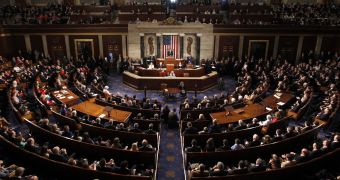It’s a good day to be alive for privacy advocates. The US House of Representatives has just passed, by a 338-to-88 vote, the USA Freedom Act, an important bill which will put an end to the National Security Agency’s (NSA) bulk phone data collection.
Voted by an overwhelming number of members, the bipartisan bill will terminate NSA’s mass-collection of phone metadata from American citizens, as well as ban bulk record collection via national security letters. Such letters allowed the NSA to collect phone records en masse, as reported by the New York Times.
Bulk collection of data was revealed in 2013 by former security contractor Edward Snowden.
Supporters of the Freedom Act, including privacy and civil right advocates, say that this piece of legislation protects privacy while preserving national security laws.
“Americans’ liberty and America’s security can co-exist. These fundamental concepts are not mutually exclusive,” explained Houser Judiciary Committee Chairman Bob Goodlatte, who voted in favor of said act.
The bill is backed up by the US president
As USA Today reports, the Freedom Act is also supported by the Obama Administration, which says it “strikes an appropriate balance between significant reform and preservation of important national security tools.”
The USA Freedom Act is now headed to the Senate and will also create a new panel of experts at the US Foreign Intelligence Surveillance Court in order to advise judges about privacy and civil liberties, communication technology, and other such matters.
But even with the overwhelming support from the House, the Senate is segregated into three distinct groups with different opinions.
There’s a bipartisan group which supports the House’s decision, a group led by Senator Mitch McConnell that wants to change to the Patriot Act (the bill would amend sections of this act which was passed after the 9/11 attacks and will expire on 1 June), and a group led by Senator Rand Paul that seeks greater restrictions on data collection.
The three groups have until June 1 to reach some sort of agreement.
The passing of the USA Freedom Act comes in the wake of another huge blow to the NSA, which recently had its phone surveillance program deemed illegal by the US Court of Appeals for the Second Circuit.

 14 DAY TRIAL //
14 DAY TRIAL //